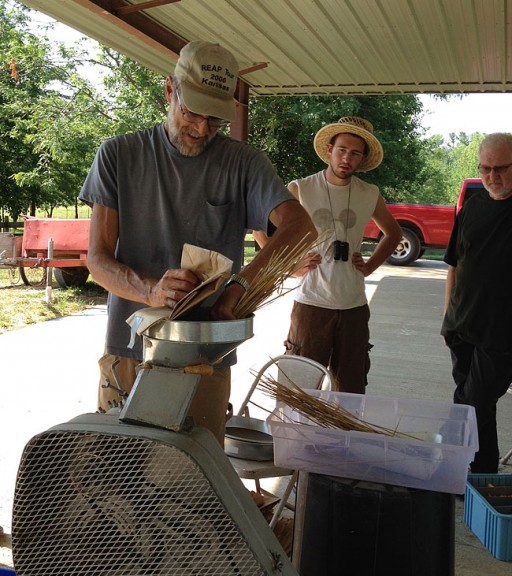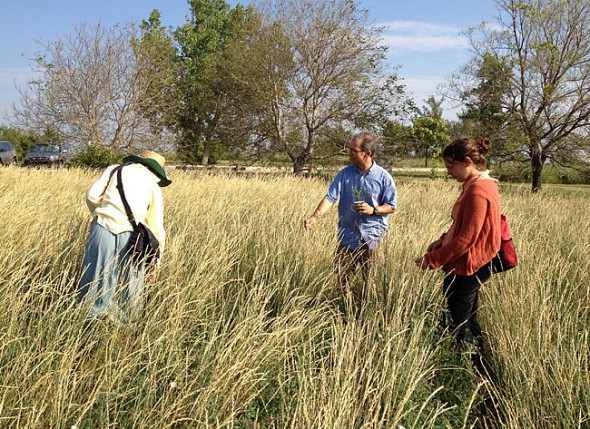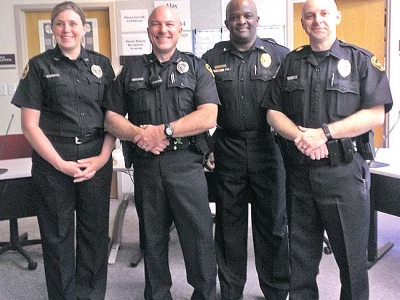Learn seed-saving during a tomato walk at Antioch
- Published: September 3, 2014
Antioch College students will share seed-saving techniques for tomatoes during a Tomato Walk at 10 a.m. Saturday, Sept. 6, on the Antioch farm.
It is the first of several planned events during which students will share what they learned from their summer field trip to the Land Institute, Seed Saver’s Exchange Conference and Whiterock Conservancy. Other events planned for the fall and winter are a Seed School and a pollinator symposium to promote “pollinator pathways” through Yellow Springs.
This summer a small group of students who volunteer, work and co-op at the farm or on Antioch food policy traveled to Iowa and Kansas to hear from leaders in the sustainable agriculture movement about some of its most promising developments. Antioch Instructor of Cooperative Education Beth Bridgeman called the field trip “transformative” as students learned the latest research on how to save seeds, perennialize calorie crops like wheat and sorghum and restore prairie lands.
“It is a much bigger picture than organic, local or ecological agriculture,” Bridgeman said.

Seed Saver’s Exchange in Decorah, Iowa, the largest non-governmental seed bank in the United States, collects, grows and shares heirloom seeds and plants, some of which are endangered. Saving seeds was practiced for millennia until the advent of industrial agriculture and commercial seed companies, which greatly reduced crop genetic diversity. According to the Millennium Seed Bank Partnership, an estimated 60,000 to 100,000 plant species today are threatened with extinction. But local seeds adapted to local environmental conditions grow best here, and should be carefully selected and passed on, Bridgeman said.
“We save the seed that works best in our area, so we’re not using a seed from Siberia,” explained Bridgeman. “And we are recapturing the seeds that used to work well here.”
To undertake a seed-saving project in Yellow Springs where local seeds would be collected, stored, and exchanged, Antioch would have to collaborate with Yellow Springs area gardeners and farmers, students emphasized. Antioch students could help find and document heirloom varieties now in use while teaching local gardeners how to properly save seed, which can be tricky, involving particular isolation, propagation and storage techniques. Students envision an educational event, or seed school here, with the ultimate goal of starting a seed library at Antioch.
Students were also inspired by the work at the Whiterock Conservancy in Coon Rapids, Iowa. There an Antioch alum donated 5,500 acres now being restored to prairie and oak savannah, which once comprised 15 percent of the Iowa landscape, according to Bridgeman. Finally, the students visited Wes Jackson’s Land Institute in Salina, Kan., which has been engaged in experimental research into perennial polycultures for decades.
Read the Sept. 5 issue of the News for the full story.
The Yellow Springs News encourages respectful discussion of this article.
You must login to post a comment.
Don't have a login? Register for a free YSNews.com account.













No comments yet for this article.